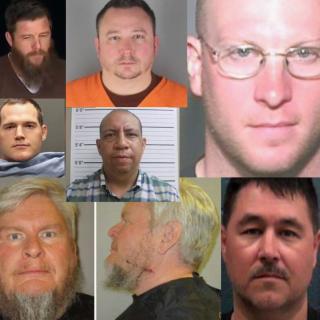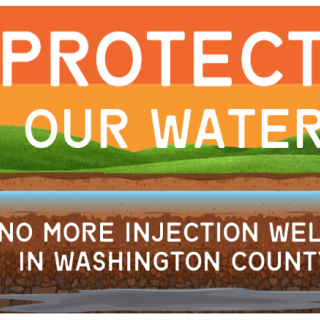Advertisement
Natural disasters and mass shootings, like the ones last Monday make me sad. Certainly the loss of life and reasonless destruction involved are always horrible, and I say my prayers/pour one out as best as any concerned citizen can. But there's another, less unsavory reason, that they give me a case of the feels. Upon first reaction, they tend to mess up all of my great perfect-in-theory anarchist ideas and the inherent oppressive nature of the police and military.
Police brutality is a problem. The militarization of the police is a problem. Our surveillance state is a problem. A country on a permanent war footing is a problem, and the problems are a direct result of what we understand the function of a state or of a government to be.
The traditional Enlightenment-era liberal theories of government (in the most egregious one paragraph summary ever) state that governments are a social contract with the people and their ruler in order to protect the rights of the people and to ward against the Hobbesian state of nature (i.e. people killing each other over toilet paper) that inevitably results absent any ruling authority. The foundation of this government's authority and its legitimacy is the consent of the governed.
Anarchist theory (also summarized in one egregious paragraph) is more of the idea that a state or government's authority is founded upon its monopoly on the use of violence, and its legitimacy is asserted through repeated demonstrations of said monopoly. This process can be seen playing out from Sicily to southern Lebanon where non-state organizations that are exceptionally skilled at violence end up becoming de facto governments and providing social services. In this school, states exist mainly to perpetuate themselves, chiefly by eliminating any threats to their authority.
Now, these two competing theories are not that far away from each other. Indeed, it is a short distance from “preserve one's rights to life, liberty and property” to “preserve order” to “protect us from each other” to “subjugate a populace.” The police are the physical embodiment of the duties of that state (note that even municipal police enforce state laws), however one interprets them.
A journey into the annals of our prison system, or to the militarized border, through our so-called national security apparatus, or to the Daymon Day Parade debacle in Columbus last week reveals the contradictions of the state's function. So much of it is brutal without benefit. The state protects its citizens by beating them, confining them to arbitrary lines, imprisoning them and putting them under surveillance.
The events of Daymon Day 2013 put the unfair logic of the state on full display. Even when playing by the state's rules, the people are still subject to its caprices. Failure to anticipate those caprices will be met with the full force of the law, with nary even an apology afterward. By and large, the only time the police face any accountability is under the threat of riots.
The only justification for this whole system is the belief that humanity is inherently wicked, that peace and order must be instilled, that power is the only thing people truly respect. If, however, you are like me and don't believe that we would be killing each other over toilet paper absent some people with guns telling us not to, the need for radically different systems of organization, ones not based on the imposition of force, becomes painfully apparent.
But then, some guy opens fire in a naval yard, or the state of Colorado goes underwater, and my very sound theories seem kind of irrelevant. After all, the police and the military that are the first on the scene, the ones rescuing people off rooftops and running into buildings at their own peril, their concern isn't with “preserving order” or “preserving the rights of the citizens” (either Orwellian or sincere-like), their only concern is with the people they're trying to help.
I will admit, the good done by state authorities is often overlooked in radical circles. Regardless of theory, much of the actual function of the government is in the form of aid and development, and of course education. And while I stop short of saying that makes the government, there certainly is nobody else equipped to be able to perform these functions (that privatized for-profit hellscape can keep on walking).
But there's a reason I said those theories only seem irrelevant. Because like I said, those brave first responders in that moment aren't motivated by some abstract duty to the state, but by the instinctual desire to help people. Those people would exist and act in any institution, no matter whether or not said institution were also under the aegis of a bunch of people with guns. And indeed, this has played out in the real world as well, where Occupy Sandy proved much more effective than FEMA at providing aid to oft-neglected neighborhoods in New York City.
The thing about radical theories is that they're really not that radical. Though the edge of a circle moves a great deal in a revolution, the center stays the same. The idea that people are able to provide for themselves and don't need to rely on a gun-wielding higher authority to do so is a reality lived by most of us most of the time. I realize this may be a discussion I'm only having with myself, but when shit goes down, we could all use a little introspection.



